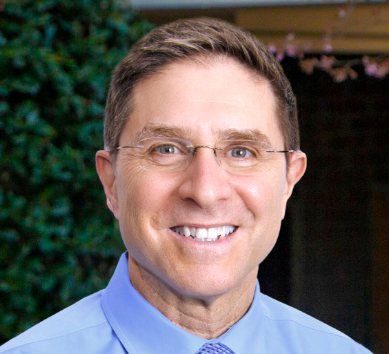Opinion: Government must help reduce climate-related illness with Carbon Dividend Act
As a doctor with 27 years of experience, I’ve noticed a dramatic rise in climate-related ailments of late.
It used to be that incidences of severe asthma and bronchitis were mostly seen in adult smokers. But lately, I’ve seen a growing number of otherwise healthy people experiencing these diseases — something that has happened in tandem with increasing air pollution alerts, resulting from drifting smoke from climate change-exacerbated wildfires.
Here in North Carolina, we’re seeing heat-related illnesses reported more frequently by emergency departments. Lingering allergy symptoms are also becoming more common. Children are particularly vulnerable. According to the newly published Fifth National Climate Assessment, “airborne pollen can pose significant health risks to populations” in the Southeast, as some species of trees and weeds exhibit longer and earlier pollen seasons. Temperature and precipitation changes are also altering the range and season of certain disease-carrying mosquitoes and ticks in our region. Of particular concern are mosquito-borne diseases such as chikungunya, dengue, malaria, West Nile virus and Zika virus. All have been documented in the Southeast and pose potential risks to human health.
Our reliance on fossil fuels is taking its toll on public health. A recent study warns of a doubled risk of fatal heart attacks due to the combination of extreme heat and fine particulate pollution. Meanwhile, epidemiologists warn that children with homes near oil and gas wells are 5-7 times more likely to develop lymphoma.
Increasingly, an altered climate is acting as a threat multiplier for public health concerns, often exacerbating pre-existing conditions, which can then become health emergencies. As our communities along the coast confront escalating flood threats, waterborne diseases like E. coli and cholera are on the rise. Intensifying storms are putting coastal hospitals at peril.
Meanwhile, climate change threatens to magnify existing disparities. Rising temperatures lead to increasing cooling bills and increased flooding leads to higher premiums for home insurance. Communities of color bear a disproportionate climate burden and under-resourced communities are hit hardest and struggle to rebuild after climate disasters. Those with debilitating medical conditions cannot evacuate easily or quickly.
As a physician who has sworn to "do no harm," I feel a responsibility to call for the much-needed solutions that will reduce air pollution, save lives and ensure better outcomes.
Likewise, elected representatives, who’ve sworn to "faithfully discharge" the duties of their offices, have an obligation to enact legislation that protects their constituents from harm. Just as preventive health care measures guard against dire health outcomes, we possess "preventive" solutions to address climate change.
Take the newly reintroduced Energy Innovation and Carbon Dividend Act, which would deploy the most powerful tool we have to drive down America’s carbon pollution. The legislation puts a fee on carbon pollution and the money collected from fossil fuel companies goes to Americans via a monthly 'carbon cash back' payment so everyone can afford the transition.
Critically, it will help improve health and save millions of American lives over the next 50 years by reducing pollution Americans breathe. Poor air quality from burning fossil fuels is responsible for as many as 1 in 10 American deaths today and sickens thousands more.
This month, our North Carolina Congressional offices met with Citizens’ Climate volunteers for constructive climate conversations. But Senators Tillis and Budd and Representative Edwards can and must do more to reduce carbon pollution.
Imagine a world where the air is visibly cleaner, the climate stable, and at least 50,000 American lives are saved each year by reducing air pollution.
In health care we have the mantra "An ounce of prevention is worth a pound of cure" and this abiding wisdom should be applied to the climate challenge.
No doctor wants to see more patients presenting with avoidable conditions. By taking action now we can improve health outcomes and save countless lives. What are we waiting for?
More: Opinion: Congress, we have a climate crisis problem and it’s time for you to solve it
More: Opinion: Those with lavish wealth, who deny global warming are not true conservatives

Dr. Brett Senor is a board-certified physician with Blue Ridge Premier Medicine and a member of the WNC chapter of Citizens’ Climate Lobby
This article originally appeared on Asheville Citizen Times: Opinion: Carbon Dividend Act would help drive down air pollution
